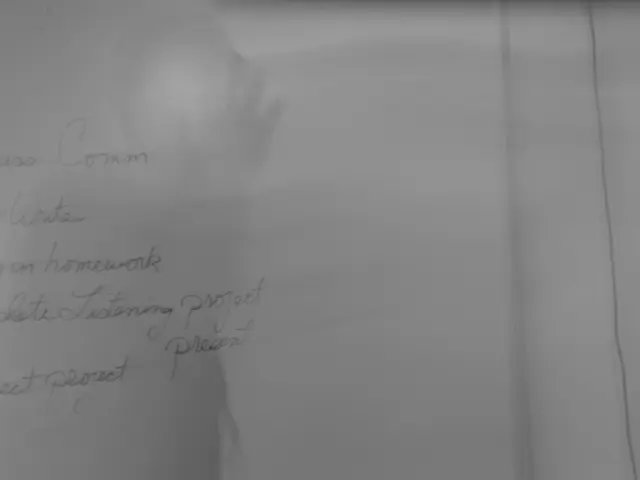Trial for Offensive Humor in Kazakhstan Ends with 10-Day Conviction for Comedian
In modern-day Kazakhstan, laughter is a tricky business. Comedian Alexander Merkul learned this the hard way when a court in Astana locked him up for 10 days due to his colorful language during a performance. The court deemed his show disrespectful and a violation of public order.
This sparked a debate online, with many arguing that the punishment was excessive for something that most people do. Designer Maria Bakalchuk from Uptime questioned why someone should be jailed for swearing, saying we all do it, even in personal conversations and at work to express our feelings.
The controversy mirrors the late Lenny Bruce's comical antics, albeit in a more authoritarian setting. The controversy stems from amendments adopted by Kazakhstan's parliament in March, which increased penalties for using foul language in public. Fines were quadrupled, and repeat offenders could face up to a month in jail.
Merkul's sentence on July 26 was seen by some as an attempt to intimidate him, given his comedic routines often involved satire aimed at authorities. Anton Miroedov, founder of Diskurs, shared his theory on Instagram, stating that Merkul had joked about "Zhana Kazakhstan" - reforms of President Kassym-Jomart Tokayev - and that the officials responded by sending him to jail.
Merkul is known for pushing the boundaries of free speech in Kazakhistan, where the government keeps a tight rein on information flows. He doesn't shy away from tackling sensitive topics in his act, including social issues. In a recent show, he mocked the country's poverty and the lack of progress since the "Rukhani Zhangyru" reforms of the previous regime.
Merkul isn't the only one facing the consequences of a quick wit and a sharp tongue. In May, comedian Nuraskhan Baskozhaev was sentenced to 15 days in jail for swearing during a performance in Almaty. His willingness to ridicule official corruption likely earned him an extended stay behind bars, according to Radio Azattyk.
The Central Stand Up Almaty club, where Baskozhaev was a regular performer, issued a statement expressing concern about the violation of young artists' rights. The case against Baskozhaev stemmed from a closed event in a club, where people were warned in advance about the use of obscene language.
Activist Maria Kochneva also faced consequences for her use of language. In July, she received a 10-day jail sentence for cursing while singing a hip-hop tune about protests against the war in Ukraine.
The head of the Almaty comedy club Please Stand Up, Ruslan Kuanov, noted that local comedians often tried to emulate American counterparts. However, Kuanov cautioned that political satire should be approached with care in Kazakhstan, given the country's unique political culture. Kuanov expressed hope that stand-up comedy would not lose its bite. "Our stand-up comedians should not be afraid," he told Eurasianet. "They need to learn to joke about topical issues subtly and wittily, so that it's funny and at the same time they don't have to answer according to the law."
The debate surrounding comedy and free speech in Kazakhstan has expanded to include the general news landscape, with critics questioning whether the strict penalties for foul language, as seen in Merkul's and Baskozhaev's cases, infringe on the rights of comedians and extended to other artists like Kochneva. Meanwhile, in the realm of politics, the increased fines and jail terms for public use of explicit language, as legislated by the Kazakhstan parliament, have raised concerns about the silencing of satirical voices, particularly when addressing corruption and sensitive social issues.








